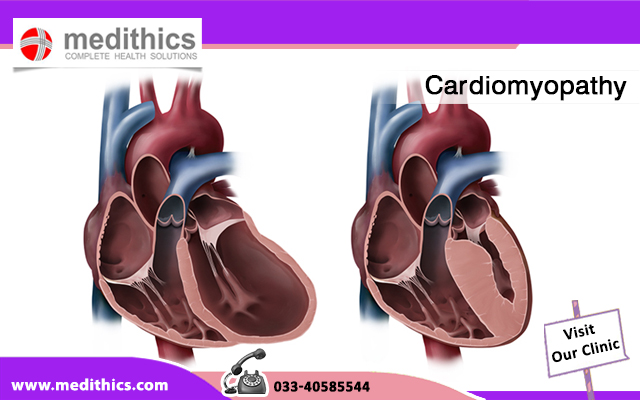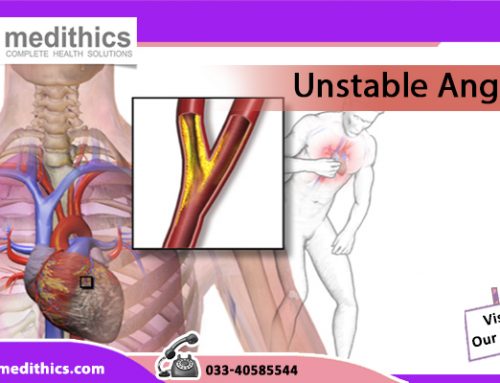If your heart cannot easily pump blood to the rest of your body, it may be due to a disease of the heart muscle. This disease is known as cardiomyopathy. There can be heart failure due to this condition. Dilated cardiomyopathy, hypertrophic cardiomyopathy and restrictive cardiomyopathy are the different types of cardiomyopathy. On the basis of the type of cardiomyopathy you have and its seriousness, the doctor decides the mode of treatment. It may be medicines or surgically implanted devices. There may be a heart transplant in severe cases.
Symptoms
In the early stages of cardiomyopathy, it may happen that there are no symptoms. You will start to feel certain symptoms as the condition advances. Some of them are mentioned here.
- There may be swelling of the legs, ankles and feet.
- You may feel breathlessness with exertion and even during rest.
- There may be bloating of the abdomen as a result of fluid buildup
- You may have a feeling of fatigue.
- While you are lying down, you may cough.
- Your heartbeats may be rapid, pounding or fluttering.
- You may feel chest discomfort or pressure.
- You may feel dizziness, lightheadedness and fainting.
If you don’t go to a cardiologist in Kolkata for timely treatment, the symptoms may worsen.
Types
The following are the different types of cardiomyopathy:
- Dilated cardiomyopathy:
The left ventricle, your heart’s main pumping chamber can’t effectively pump blood out of the heart in this type of cardiomyopathy. This is because the chamber becomes dilated (enlarged) and weakened.
- Hypertrophic cardiomyopathy:
There is abnormal thickening of your heart muscle in this type. This affects the muscle of your left ventricle, the heart’s main pumping chamber. The heart finds it difficult to work properly because of the thickening of the heart muscle.
- Restrictive cardiomyopathy:
The heart muscle becomes rigid and less elastic in this type. As a result, it cannot expand and gets filled with blood between heartbeats.
- Arrhythmogenic right ventricular dysplasia:
Scar tissue replaces the muscle in the lower right heart chamber (right ventricle) in this rare type of cardiomyopathy. There can be heart rhythm problems due to this.
There are also other types of cardiomyopathy, which fall under unclassified cardiomyopathy.
Diagnosis
A heart specialist in Kolkata will suggest some diagnostic tests besides conducting a physical examination, going through you and your family’s medical history and asking about your symptoms. Some of the diagnostic tests are:
- Echocardiogram
- Electrocardiogram (ECG)
- Chest X-ray
- Treadmill Stress Test
- Cardiac CT Scan
- Cardiac Catheterization
- Cardiac MRI
- Blood Tests
- Genetic Testing or Screening
Treatment
The doctor treats cardiomyopathy to manage your symptoms, prevent the conditions from worsening and reduce your risk of complications. There are different purposes for which a doctor prescribes medications. These include improving the pumping ability of your heart, improving blood flow, lower blood pressure and prevent the formation of blood clots. The doctor can place different types of devices into the heart to improve its function. Septal ablation and radiofrequency ablation are some other procedures. A surgical procedure called septal myectomy is often necessary for the treatment of cardiomyopathy.





